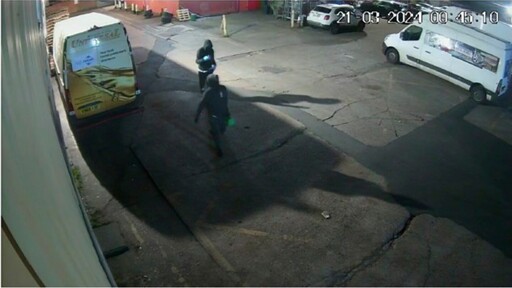…
Four European intelligence officials told AP they’re worried the risk of serious injury or even death is rising as untrained saboteurs set fires near homes and businesses, plant explosives or build bombs. AP’s tracking shows 12 incidents of arson or serious sabotage last year compared with two in 2023 and none in 2022.
“When you start a campaign, it creates its own dynamic and gets more and more violent over time,” said one of the officials, who holds a senior position at a European intelligence agency. The official, like two others, spoke on condition of anonymity to discuss security matters.
The Kremlin did not reply to a request for comment on the British case. Spokesperson Dmitry Peskov previously said the Kremlin has never been shown “any proofs” supporting accusations Russia is running a sabotage campaign and said “certainly we definitely reject any allegations.”
…
When Russia’s disruption campaign started following the Ukraine invasion, vandalism – including defacing monuments or graffiti — was more common, said [one] senior European intelligence official.
“Over the last year, it has developed to arson and assassination,” the official said.
Other incidents linked to Russia with the potential to cause serious injury or death include a plot to put explosive devices on cargo planes – the packages ignited on the ground – and plots to set fire to shopping centers in Poland, Latvia and Lithuania.
…
Shortly after the fire in London, [where this week a court found three men guilty of an arson in a March 2024 plot that prosecutors said was masterminded by Russia’s intelligence services] co-conspirators discussed what they would do next, according to messages shared with the court.
They talked about burning down London businesses owned by Evgeny Chichvarkin — a Russian tycoon who delivered supplies to Ukraine.
…
In the messages, [one of the attackers] vacillated between saying they didn’t “need” any casualties and that if they “wanted to hurt someone,” they could put nails in a homemade explosive device. He noted there were homes above the wine shop.
That reflects a phenomenon the senior intelligence official noted: Middlemen sometimes suggest ideas — each one a “little better” and more dangerous.
While Russia’s intelligence services try to keep “strict operational control” — giving targets, deciding on devices and demanding recruits record the sabotage — sometimes “control does not hold,” said Lotta Hakala, a senior analyst at the Finnish Security and Intelligence Service.
That appears to be what happened in London.
…



Guess how Putin solidified his power. G’head. Guess.
Tap for spoiler
hint